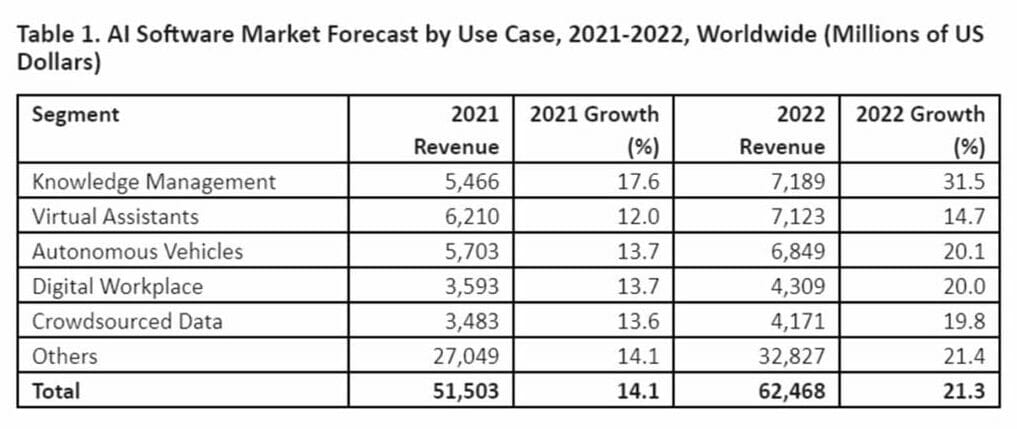The AI software forecast from Gartner is based on use cases, measuring the amount of potential business value, timing of business value and risk to project how use cases will grow.
According to the global research firm and consultancy, the top five use case categories for AI software spending in 2022 will be knowledge management; virtual assistants; autonomous vehicles; digital workplace; and crowdsourced data.

The AI software market encompasses applications with AI embedded in them, such as computer vision software, as well as software that is used to build AI systems.
“The AI software market is picking up speed, but its long-term trajectory will depend on enterprises advancing their AI maturity,” said Alys Woodward, senior research director at Gartner.
“Successful AI business outcomes will depend on the careful selection of use cases. Use cases that deliver significant business value, yet can be scaled to reduce risk, are critical to demonstrate the impact of AI investment to business stakeholders.”
Global AI regulation? Possibly, and it’s starting in the EU
AI maturity lags behind interest
Gartner’s findings also show that AI software is playing catchup with the interest of companies, with organisations commonly experimenting with AI, but struggling to make the technology a part of their standard operations.
According to the 2022 Gartner CIO and Technology Executive Survey, 48% of CIOs have already deployed or plan to deploy AI and machine learning technologies within the next 12 months.
Gartner predicts that it will take until 2025 for half of organisations worldwide to reach what Gartner’s AI maturity model describes as the “stabilisation stage” of AI maturity or beyond.
Advances in AI maturity are set to increase AI software revenue due to increased spending, particularly across the data and analytics-related technology category.
Conversely, a lag in maturity — caused by reluctance to embrace AI, lack of trust in AI and difficulties delivering business value from AI — will have a corresponding deceleration effect on spending and revenue, according to Gartner.







